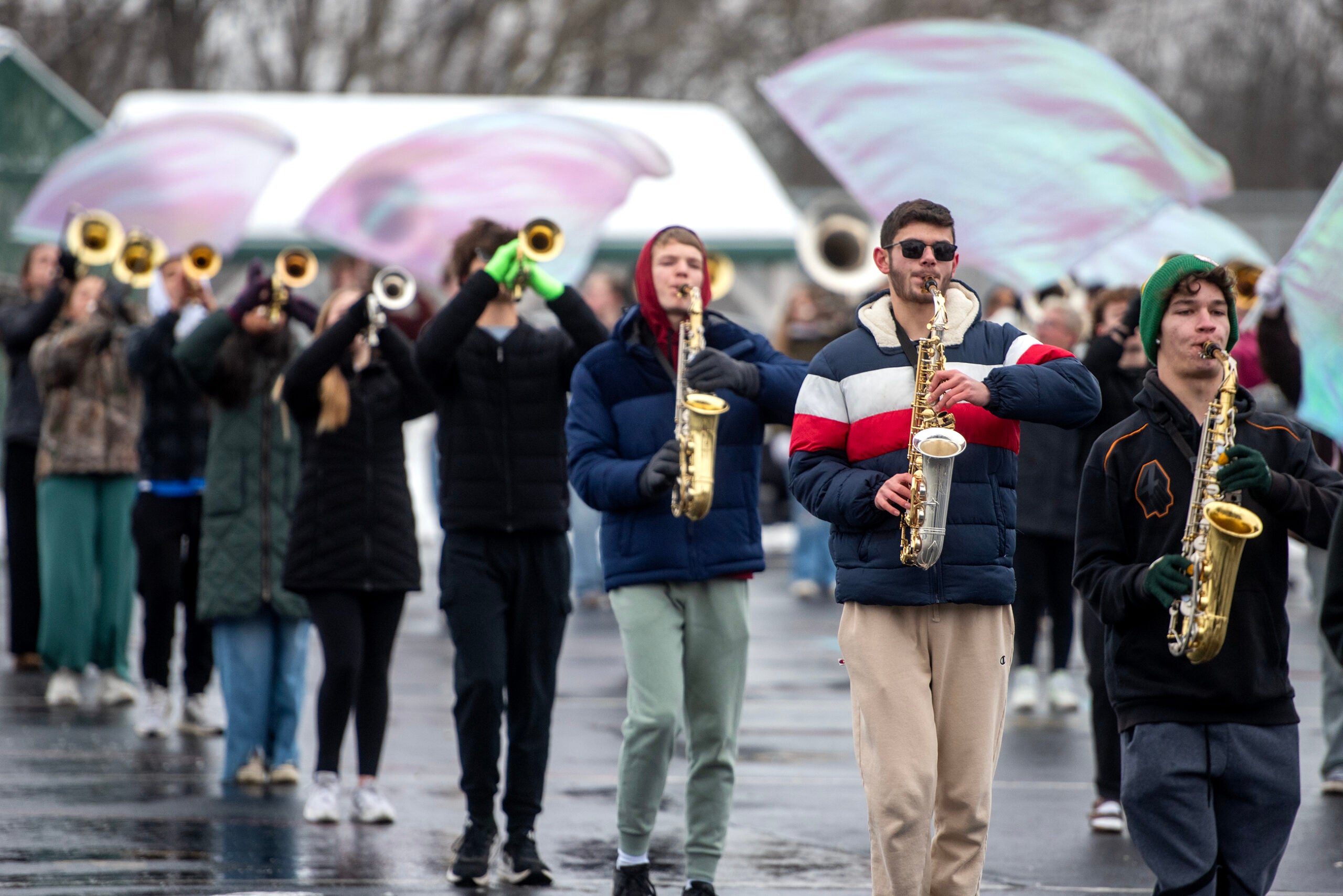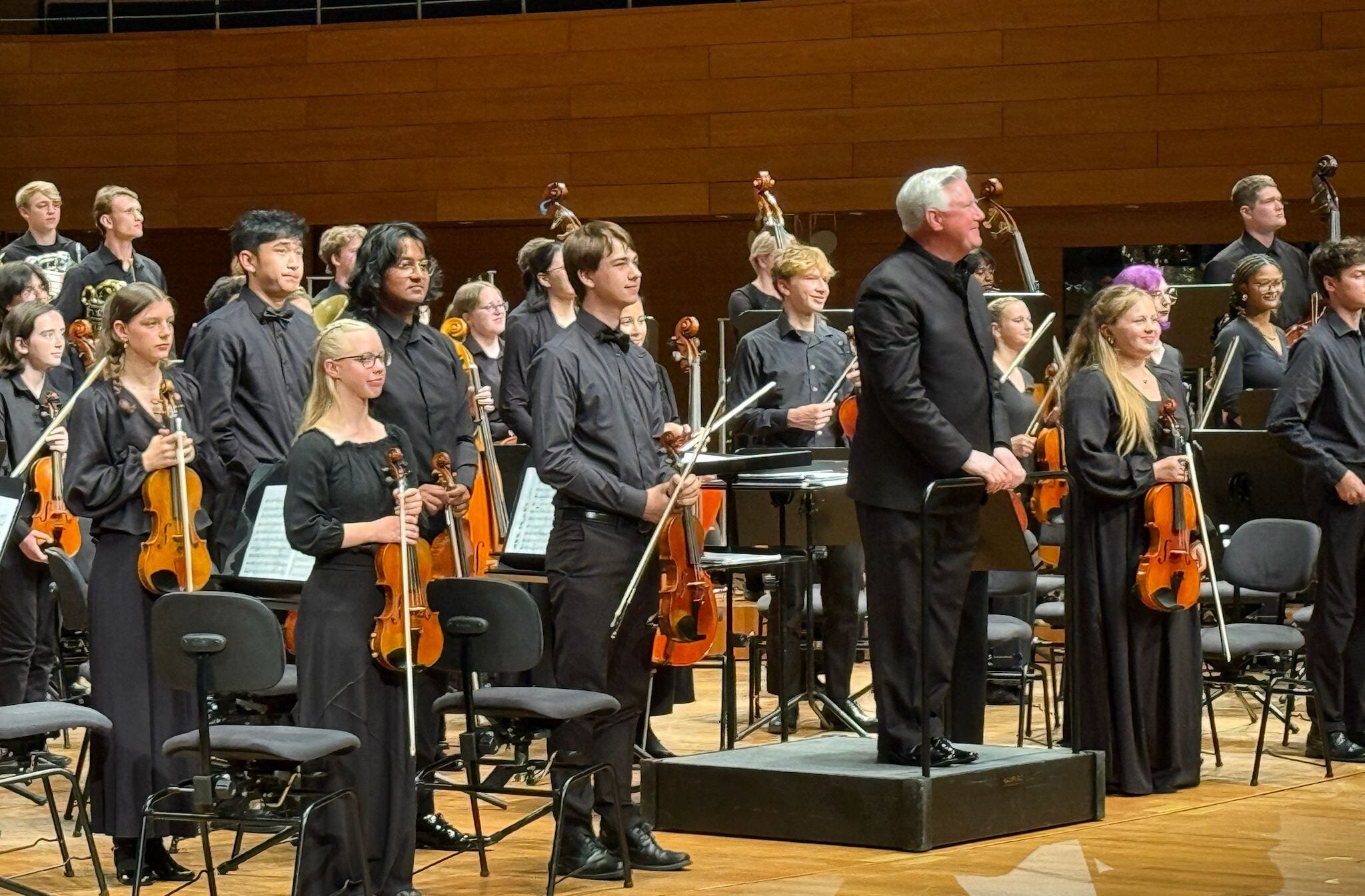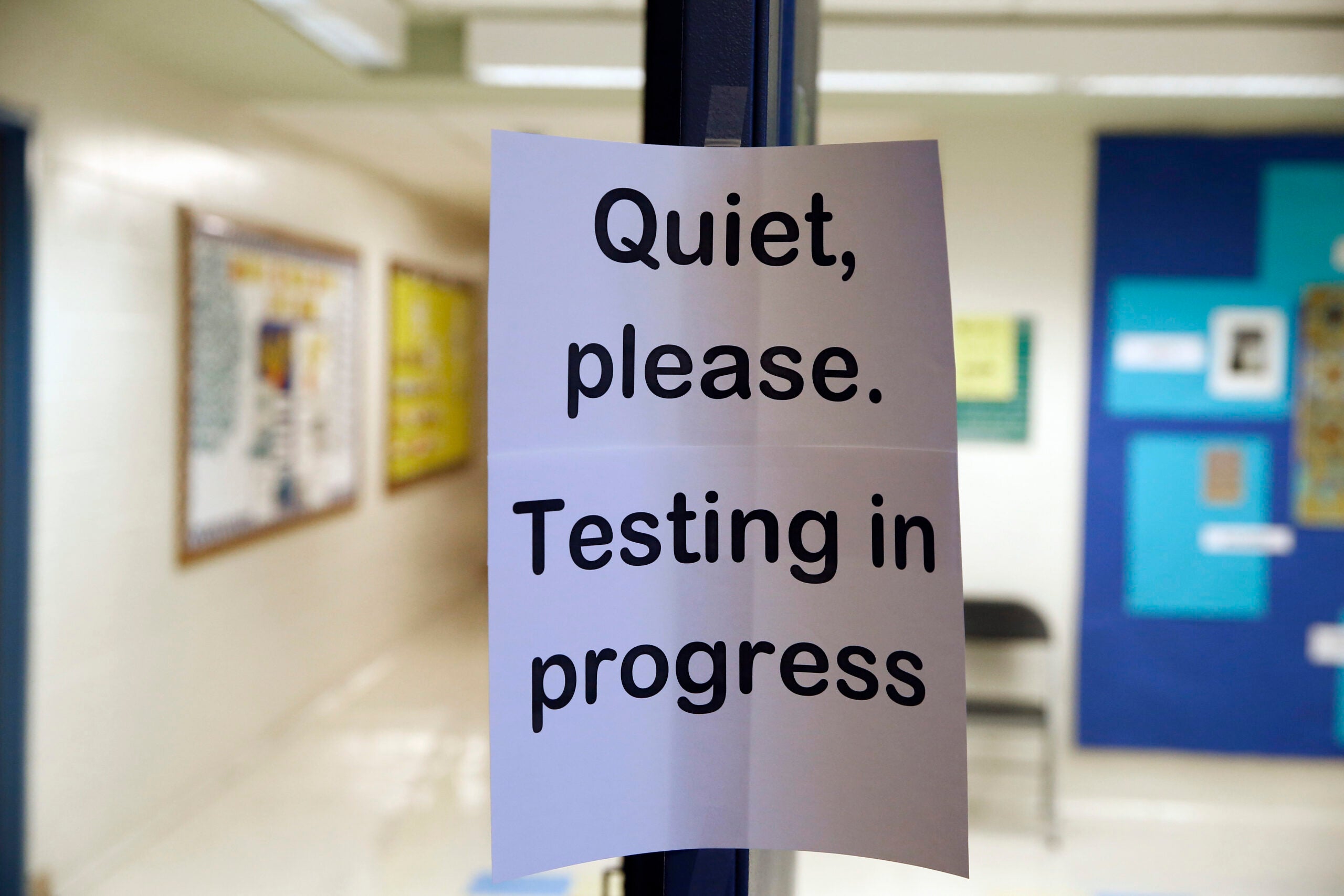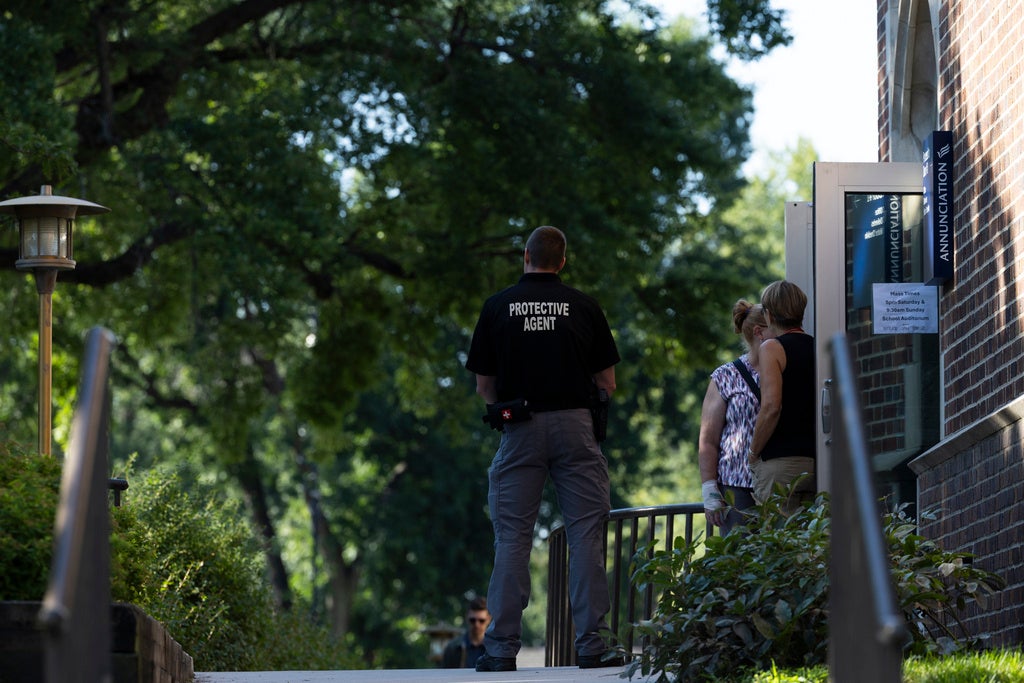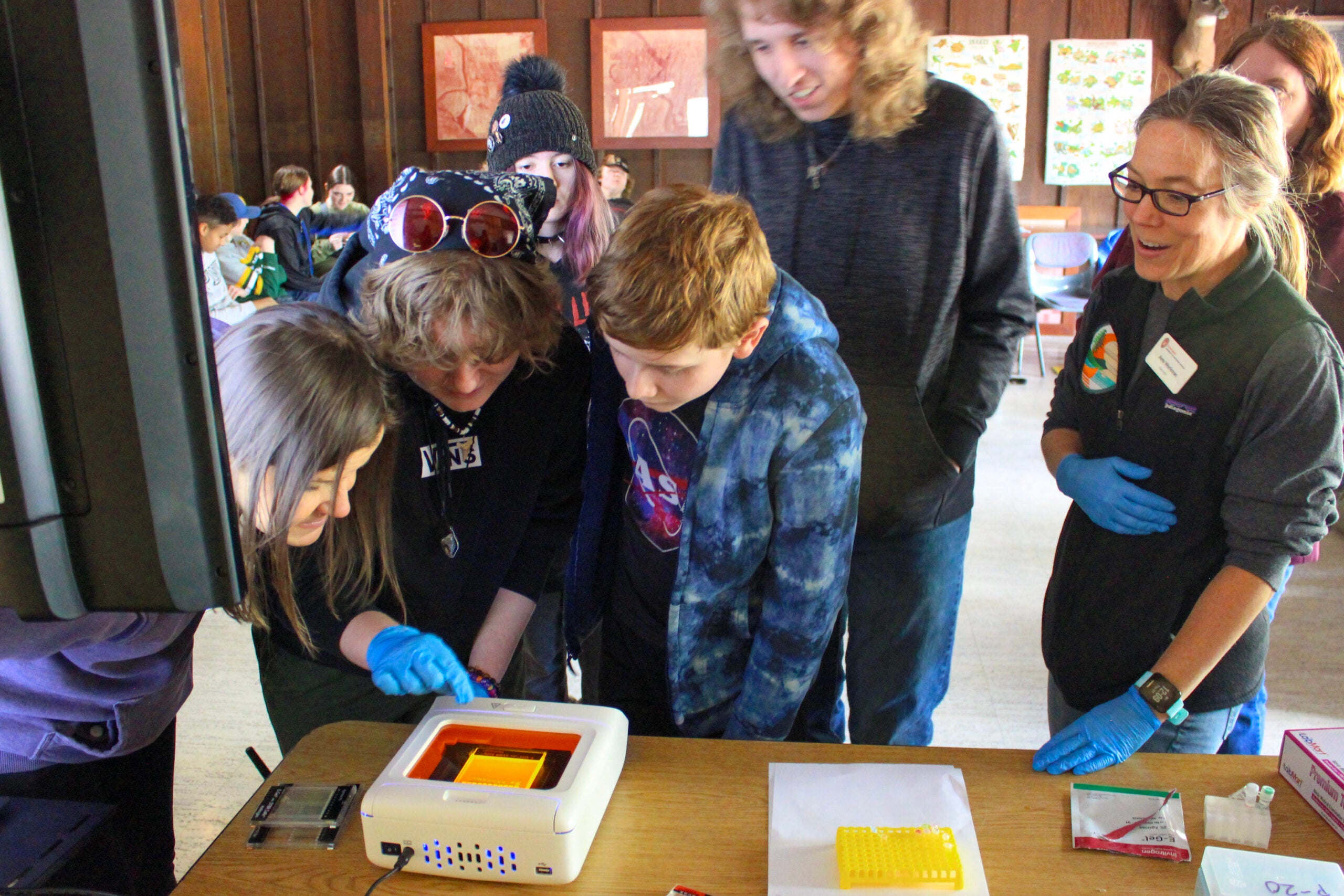The students of the Wisconsin Youth Symphony Orchestras, or WYSO, can finally all gather in one place.
For years, they lacked a central location to rehearse, and were forced to spread out across churches, schools and even parking lots in Madison.
But in April, WYSO officially opened its new, 40,000 square foot building on Madison’s east side. The $33 million facility took nearly two years to build and features rehearsal spaces, a library, piano lab, instrument repair shop and practice studios for instruments of all kinds.
News with a little more humanity
WPR’s “Wisconsin Today” newsletter keeps you connected to the state you love without feeling overwhelmed. No paywall. No agenda. No corporate filter.
Music director and Youth Orchestra conductor Kyle Knox talked with WPR’s “Wisconsin Today” about how the new building benefits WYSO students, especially those who wouldn’t otherwise have access to music education.
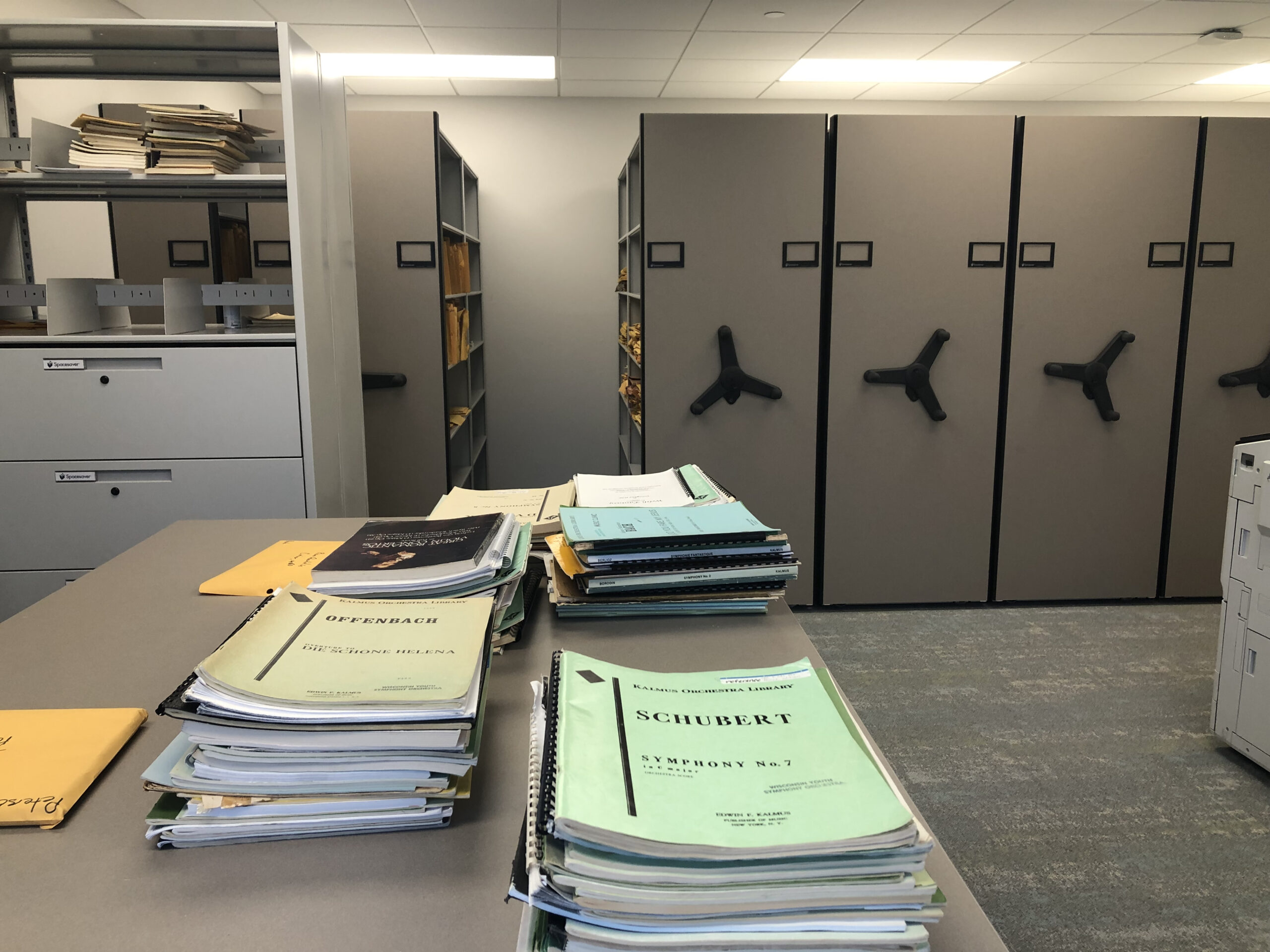
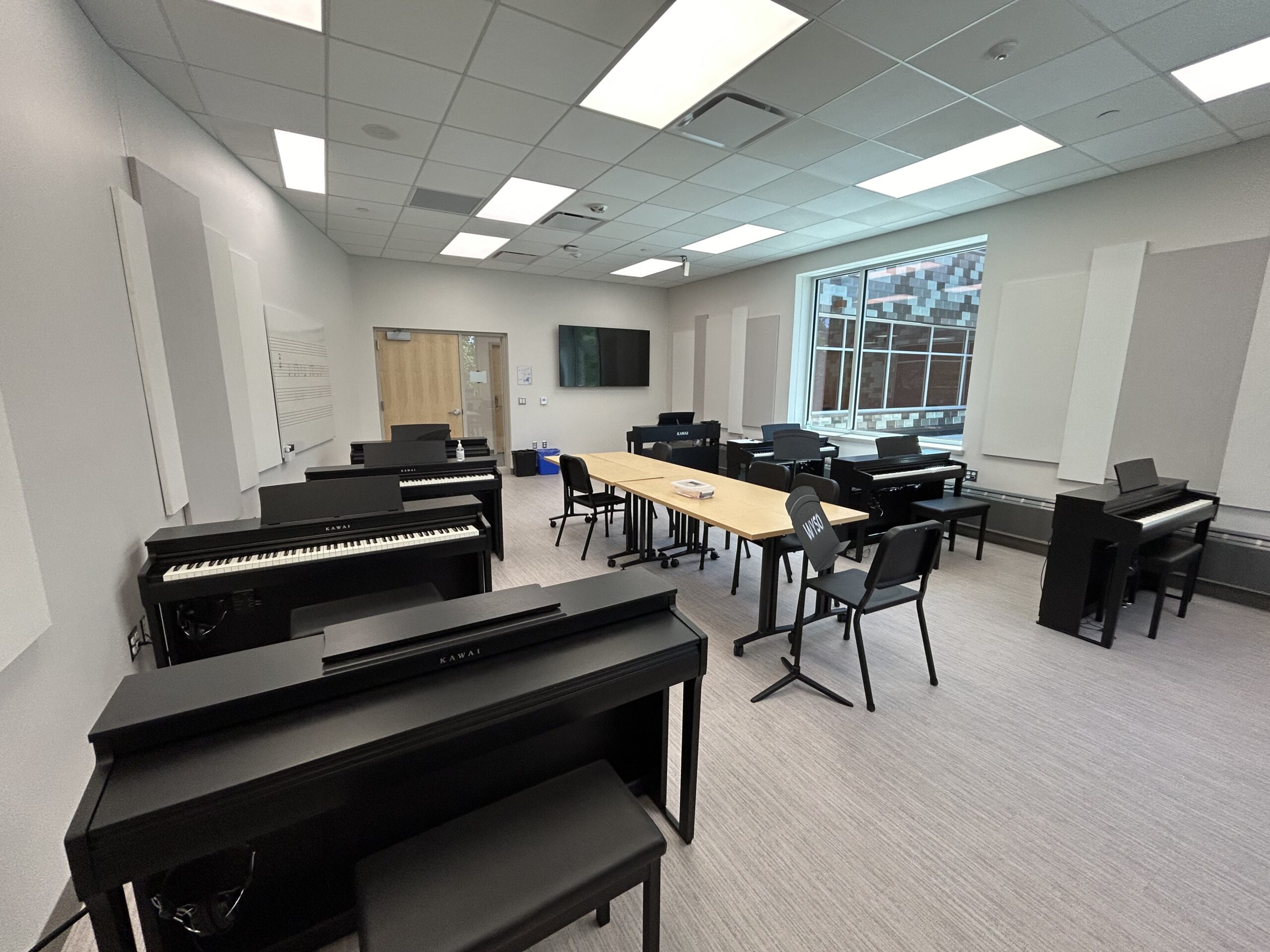
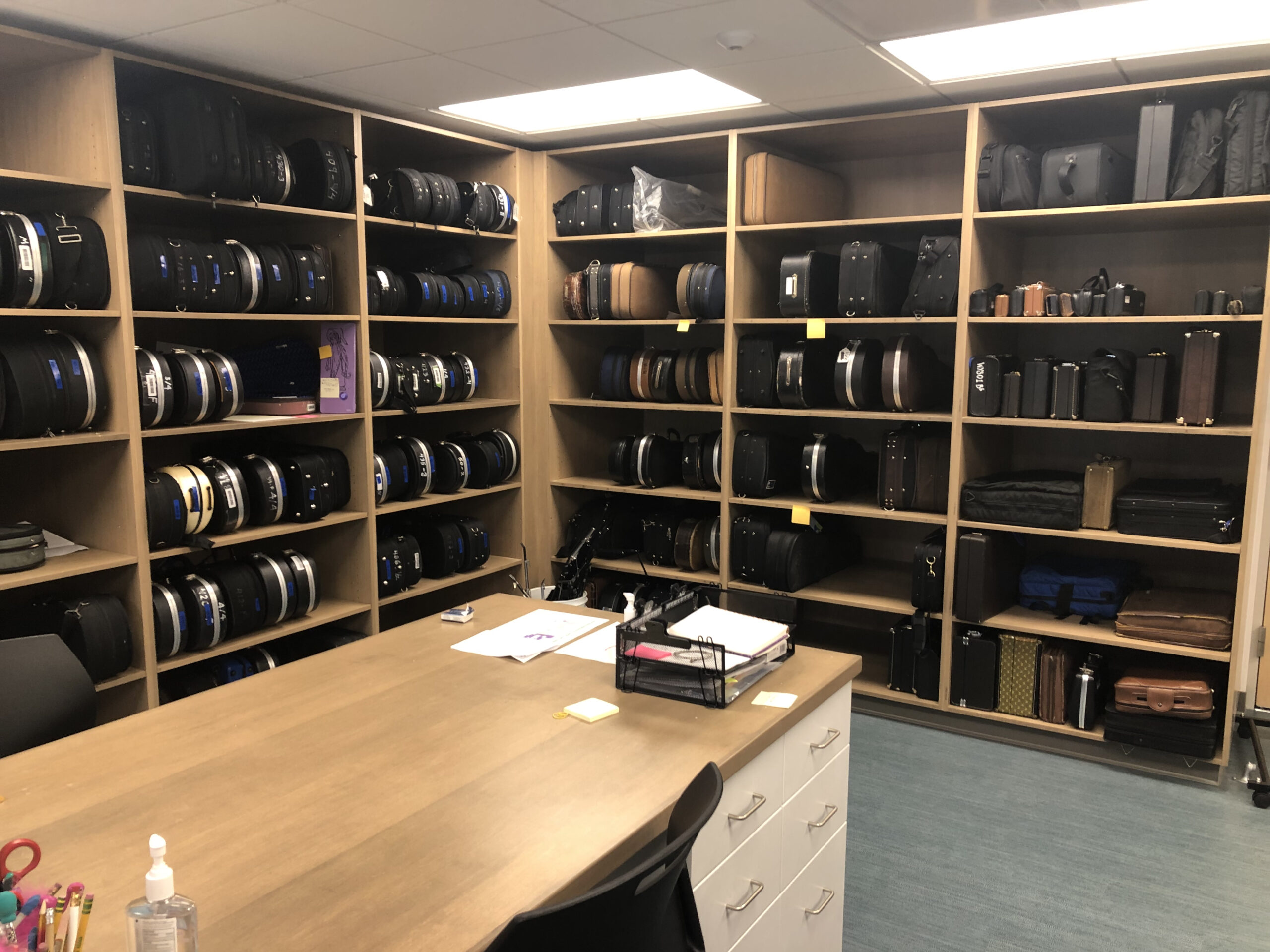
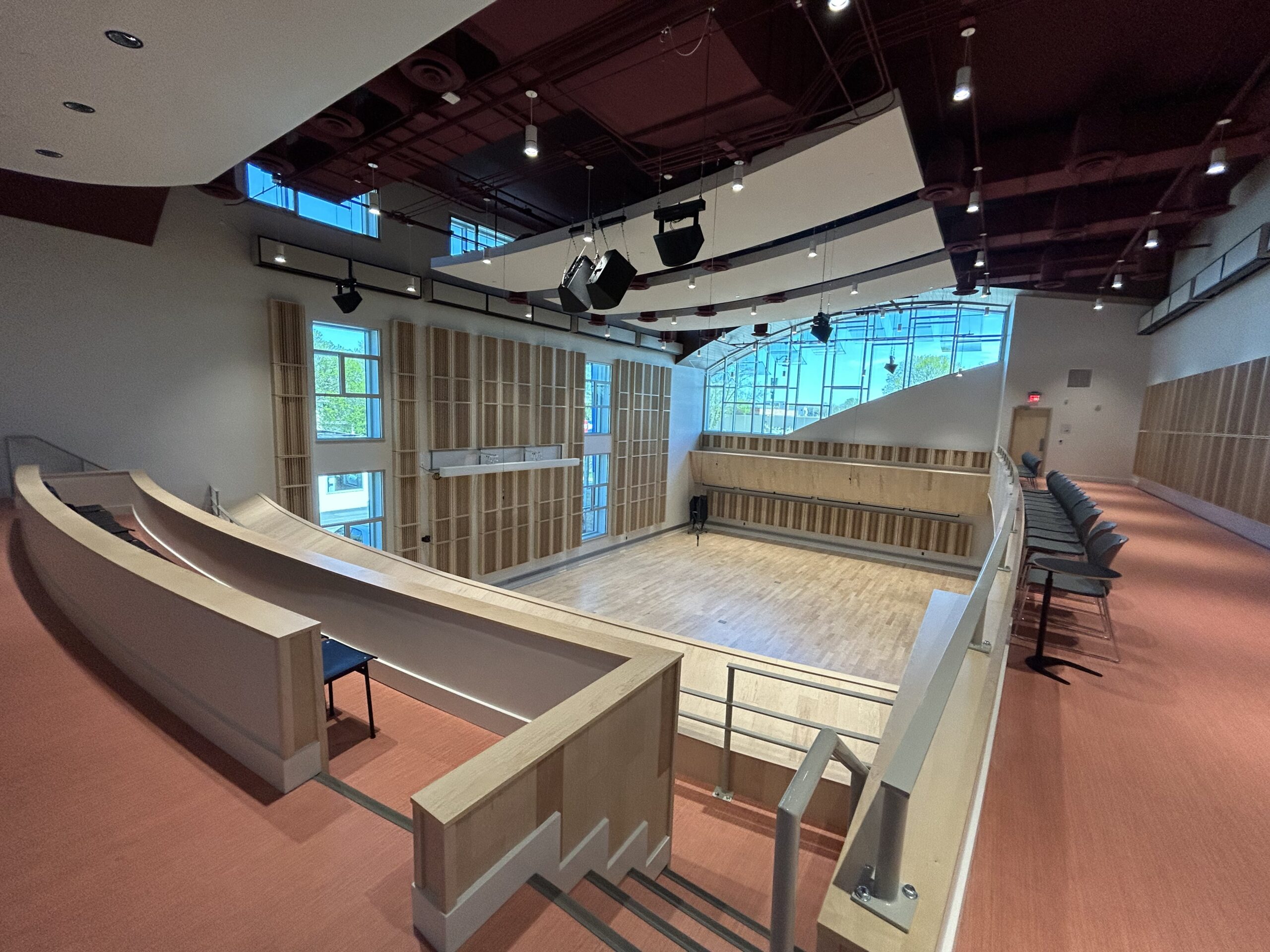
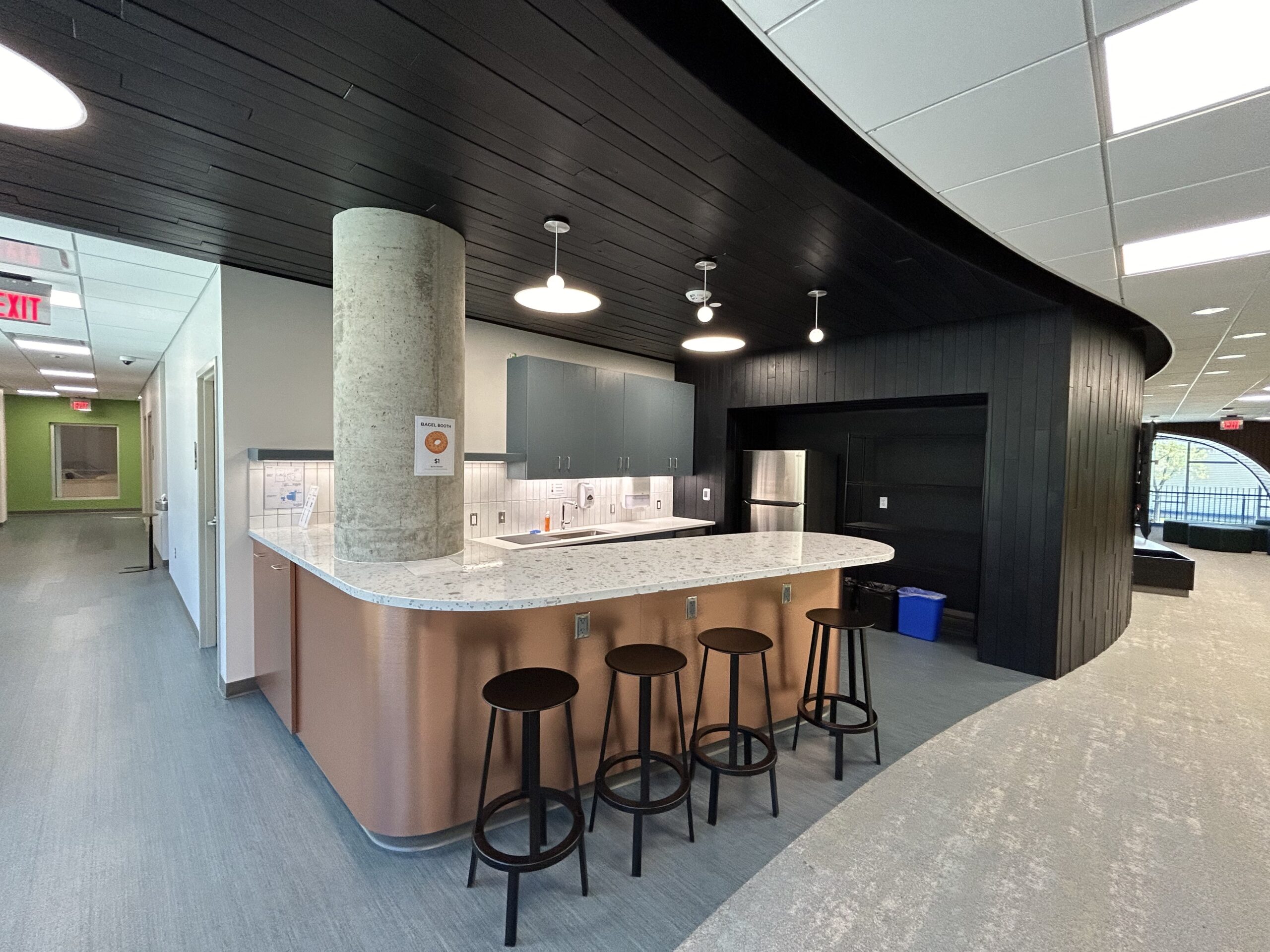
Various rooms in WYSO’s new facility, from top left to bottom right: Music library, piano lab, instrument storage, rehearsal hall balcony and a kitchenette fondly referred to as the “bagel booth.” Photos courtesy of the Wisconsin Youth Symphony Orchestras
This interview has been edited for brevity and clarity.
Kate Archer Kent: You’ve called this new facility a building that is “unique in the United States.” What makes it so special?
KK: I think what you see around town and in various places you could go around the country, there’s lots of concert halls, places where we can do musicals and opera and orchestra performances — things that are really meant for public consumption, public-facing kinds of rooms. But what we don’t have lots of is great rehearsal space, places that have amazing acoustics, and have the unique properties that rehearsals require.
KAK: Some of these rehearsal spaces are quite large, capable of holding 100-piece orchestras. What does that allow you to do?
KK: Well, the needs of a youth orchestra are very specific. … We have five different orchestras, ranging in size from about 60 to over 100. And they need to be in big, cavernous rooms that have great acoustics, that have a lot of floor area and that have some observation space.
The way WYSO is modeled is that it’s sort of a busy beehive. We’re all meeting at once, so you need more than one large room. But you also need these kinds of breakout rooms where you can have sectionals and masterclasses and places where you can have lower student-to-teacher ratios.
What this building allows us to do uniquely is it allows us to run our program and to expand and to do new things and to schedule more flexibly based on the needs of our families to reach new communities.
KAK: Tell us about your Music Makers program and who gets to participate.
KK: Anyone who contacts us is eligible. The idea is it’s a hugely subsidized program. So some people pay more than others. But there are many people who pay very little. And the idea is that cost cannot be a barrier. Studying music is an expensive endeavor. In addition to being in some kind of a school program, you have to rent an instrument or own an instrument, you need to have the resources to get private lessons. That’s really where the progress is made.

Music Makers is really for the population of people who maybe don’t have those things yet. They don’t know teachers, or maybe they can’t afford those kinds of things. Music Makers was designed as a place where it’s sort of a soup-to-nuts music education. Rather than kids coming to us auditioning into an orchestra, we’re very often starting kids from their very first lesson. … They get lessons, they get an instrument, they get all their music, they get group classes. Many of those kids make their way to auditioning into our orchestras.
KAK: A recent federal survey of teen health found that about 1 in 5 youth have symptoms of anxiety or depression. How do you address the mental health piece at your organization?
KK: Most of the kids who I talked to, and their parents tell us, that this is their favorite part of the week. When you walk these hallways, and you see what we do, you can understand why that is.
When kids are here, they’re hanging out with each other, they’re hanging out at the bagel booth, they’re at the coffee kiosk, they’re chatting, and it reminds me of how it was when I was a teenager in the ’90s. It’s just kids being kids.
And then when they’re in rehearsal, they’re experiencing this ritual of what it means to make music in a large group, to play these great masterpieces that (have) reached them hundreds of years after they were written. I think for a lot of these kids music is an escape from a lot of the hard things in life, whether it be the stress of school or social difficulties and online stuff. I think WYSO is kind of a relief from all of that.
Wisconsin Public Radio, © Copyright 2025, Board of Regents of the University of Wisconsin System and Wisconsin Educational Communications Board.



